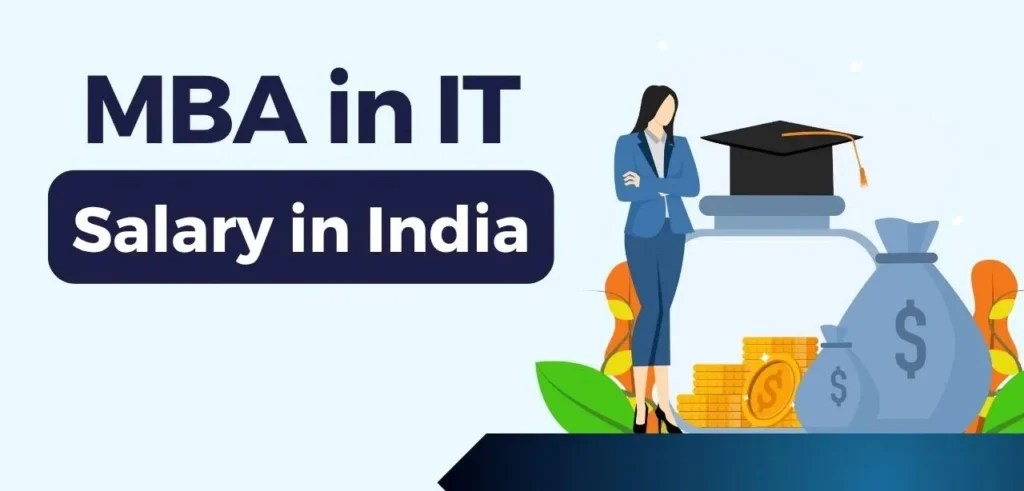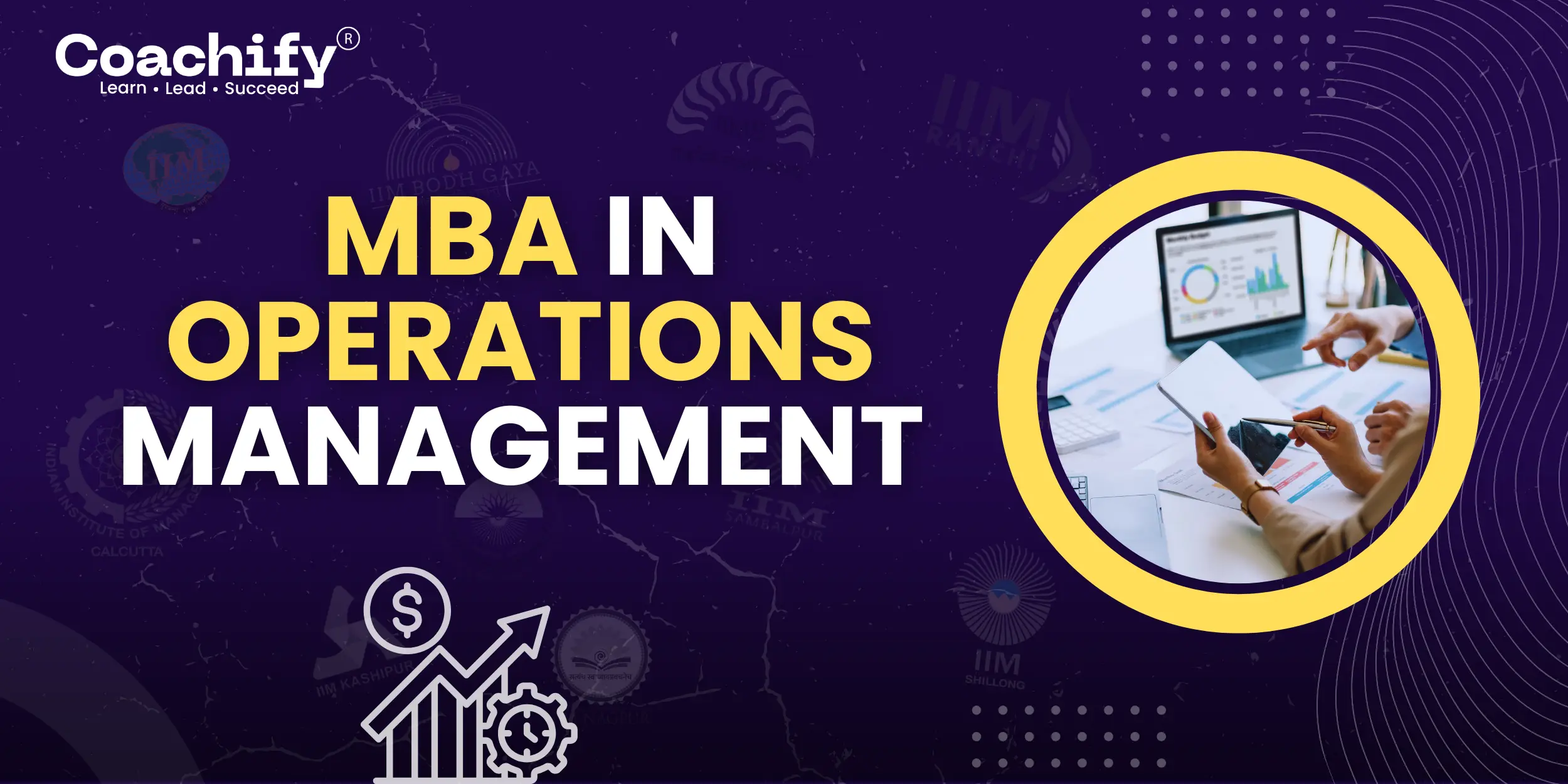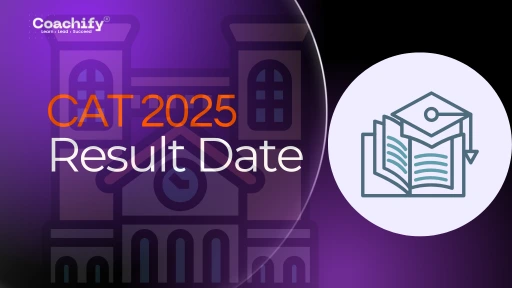With India’s digital economy expanding at an unprecedented pace, professionals equipped with both technical expertise and business acumen are in high demand. An MBA in IT empowers individuals to lead strategic technology initiatives across industries—from fintech and consulting to e-commerce and manufacturing. As companies prioritize innovation and digital transformation in 2025, the earning potential for those with an MBA in Information Technology continues to rise, offering competitive salaries and dynamic career paths.

Table of Contents
- Overview of MBA in IT Salary 2025
- Experience-Wise Trends
- Industry Differences
- CAT’s Role in Salary Boost
- Top Colleges & CAT Cutoffs
- Government vs Private Roles
- Career Path & Future Scope
- Conclusion
Overview of MBA in IT Salary in 2025
An MBA in IT (Information Technology) is no longer just a tech specialization—it's a bridge between business strategy and digital transformation. In 2025, companies across industries are seeking professionals who understand both data systems and managerial execution.
The MBA in Information Technology salary in India is showing significant growth:
| Level |
Average Salary (₹/annum) |
| Fresher (0–2 yrs) |
₹6 – 9 LPA |
| Mid-Level (3–6 yrs) |
₹10 – 18 LPA |
| Senior (7+ yrs) |
₹18 – 30 LPA |
In leading MNCs, the highest salary packages for MBA in IT graduates can exceed ₹30 LPA, particularly in roles like Product Manager, IT Consultant, or Technology Strategist.
Experience-Wise Salary Trends After MBA in IT
The salary after an MBA in IT significantly varies based on work experience, domain expertise, and the reputation of the B-school. Here's a breakdown of the average salary expectations across different career stages:
1. Fresher Salary After MBA in IT (0–2 Years of Experience)
Fresh graduates with an MBA in Information Technology from top institutes like IIMs, IITs (DMS, SJMSOM), or Tier-1 private B-schools typically receive placement packages ranging between ₹8 to ₹12 LPA. Those from Tier-2 or Tier-3 institutions can expect ₹5 to ₹8 LPA, depending on internships, project experience, and domain skills.
Common Roles for Freshers:
- IT Analyst: Works on requirement analysis, systems design, and stakeholder reporting.
- Business Systems Associate: Bridges technical teams and business processes.
- Associate Product Manager: Supports product lifecycle, from ideation to release.
- Technical Account Executive: Manages client relationships and supports enterprise IT delivery.
Explore: Top 5 MBA Colleges with Low Fees and High Packages in India (2025)
Tip: Certifications in data analytics, Python, or cloud platforms (AWS, Azure) can boost fresher packages by ₹1–2 LPA.
2. Mid-Level Professionals (3–5 Years of Experience)
With a few years of industry experience post-MBA, professionals typically move into managerial or specialist roles. At this stage, the average MBA in IT salary in India ranges from ₹12 to ₹18 LPA, especially if combined with domain certifications and strategic projects.
Common Job Titles:
- IT Project Manager: Oversees IT project execution, stakeholder communication, and resource planning.
- Cybersecurity Consultant: Advises on data protection, infrastructure security, and compliance.
- Enterprise Architect: Designs IT infrastructure aligned with business needs.
- Technology Lead – Business Applications: Manages ERP, CRM, or custom software delivery for internal/external clients.
Career Boost: Professionals with PMP, CISA, or cloud architecture credentials often earn ₹2–5 LPA more than peers.
3. Senior-Level Executives (7+ Years of Experience)
Senior professionals with over 7 years of experience post-MBA in Information Technology often hold leadership roles and strategic oversight. These positions require a strong grasp of both business objectives and technical implementation.
Typical salary packages for this cohort range between ₹20 to ₹35 LPA, with some roles exceeding ₹40 LPA in global firms or product-based companies.
Common Leadership Roles:
- Chief Information Officer (CIO): Leads the organization's overall tech strategy and transformation.
- VP – Technology: Drives innovation, IT operations, and alignment with business goals.
- Director – IT & Strategy: Responsible for budgeting, vendor selection, and digital roadmap execution.
- Senior Product Head: Owns the tech product vision, development roadmap, and GTM execution.
Recommended Read: IIM Ahmedabad's Global Ranking & Salary Package Insights for 2025 Aspirants
Summary Insight
| Experience Level |
Average Salary (₹) |
Key Roles |
| 0–2 Years (Freshers) |
₹6–12 LPA |
Analyst, APM, Systems Associate |
| 3–5 Years (Mid-Level) |
₹12–18 LPA |
Project Manager, Consultant, Architect |
| 7+ Years (Senior) |
₹20–35+ LPA |
CIO, Director, VP, Product Head |
Whether you're starting out or scaling your career, an MBA in IT offers consistent salary growth aligned with India’s digital-first economy.
Industry-Wise Salary Differences
The MBA in Information Technology provides cross-industry mobility. Here's how salaries vary:
| Industry |
Salary Range (2025) |
| IT Consulting |
₹10 – 22 LPA |
| Fintech & Banking |
₹12 – 28 LPA |
| E-Commerce & Startups |
₹9 – 20 LPA (+ ESOPs) |
| Healthcare IT |
₹8 – 16 LPA |
| Product Management |
₹12 – 30+ LPA |
Explore related domains: MBA in Finance Salary in India 2025
Role of CAT in MBA in IT Admissions & Salary
A good CAT score opens doors to premier institutes, which leads to better placements and higher salary packages.
Why CAT Matters:
- Institutes like IIM Calcutta, IIT Bombay (SJMSOM), and NITIE offer specialized tech-focused MBAs.
- Companies prefer candidates from these top-tier B-schools, offering ₹18–25 LPA on average.
Recommended Reading:
Top MBA in IT Colleges Accepting CAT
Here are some of the top institutes in India that offer MBA in Information Technology and accept CAT:
| Institute |
Average CTC (₹/annum) |
| IIM Calcutta (Dual electives) |
₹25 LPA |
| SJMSOM, IIT Bombay |
₹24 LPA |
| VGSOM, IIT Kharagpur |
₹18 LPA |
| DMS, IIT Delhi |
₹22 LPA |
| KJ Somaiya (ITM) |
₹12 LPA |
| GIM Goa |
₹13 LPA |
Explore more : Top 50 MBA Colleges in India 2025: Fees, Placements & CAT Cutoff
Government vs Private Sector Roles After MBA in IT
After completing an MBA in Information Technology, professionals often face a key career choice: whether to pursue stable roles in the government sector or dynamic, higher-paying roles in the private sector. Each offers distinct advantages and trade-offs.
Government Sector Opportunities
Government and public sector organizations increasingly require technology experts to drive IT transformation, cybersecurity, and system modernization. While MBA in IT salary packages in the government domain are relatively modest, the non-monetary benefits are substantial.
Common Recruiters:
- National Informatics Centre (NIC) – Leads India’s e-governance backbone.
- ISRO (Indian Space Research Organisation) – Offers technical and IT project roles in strategic sectors.
- DRDO (Defence Research and Development Organisation) – Hires for cybersecurity, system architecture, and IT operations.
- Public Sector Undertakings (PSUs) like NTPC, BHEL, and GAIL – Have dedicated IT divisions.
Roles Offered:
- IT Project Officer
- Systems Analyst
- Network Security Consultant
- ERP/Database Administrator
- Data Governance Specialist
Key Benefits:
- Job stability and long-term employment
- Provident fund, pension, and housing allowances
- Work-life balance and fixed working hours
- Opportunities to contribute to national-scale digital projects
Private Sector Roles After MBA in IT
The private sector offers a dynamic, performance-driven environment that rewards tech-savvy management professionals. This is where the MBA in IT salary peaks due to faster career growth, skill-based increments, and global exposure.
Top Hiring Domains:
- IT Services & Consulting (TCS, Infosys, Capgemini)
- Product-Based Tech (Google, Microsoft, Amazon)
- FinTech & Banking (Paytm, Razorpay, HDFC Bank)
- E-Commerce (Flipkart, Meesho, BigBasket)
- Startups & SaaS (Zoho, Freshworks, Unacademy)
Common Roles:
- IT Consultant
- Digital Transformation Manager
- Associate Product Manager
- Cloud Program Manager
- Data & Analytics Lead
- ERP Implementation Head
Career Perks:
- Rapid salary growth and promotions
- Performance-based bonuses and ESOPs
- International client exposure and project mobility
- Use of cutting-edge technologies (AI, Blockchain, Cloud, IoT)
Skill Edge:
Private employers increasingly prefer MBA in IT graduates who supplement their degree with technical certifications like:
- AWS Certified Solutions Architect
- Google Data Analytics
- Microsoft Azure Admin
- PMP, ITIL, or Scrum Master for project-based roles
- Python, SQL, Tableau for analytics roles
Summary Table
| Factor |
Government Sector |
Private Sector |
| Salary Range |
₹7–12 LPA |
₹10–30+ LPA |
| Job Security |
Very High |
Moderate |
| Career Growth |
Slower |
Fast, Performance-Based |
| Work-Life Balance |
Excellent |
Varies by company/project |
| Global Exposure |
Limited |
High (especially in MNCs & Startups) |
| Skill Utilization |
Traditional Systems |
Latest Tools & Tech |
Long-Term Career Scope & Salary Growth
In the next 5–10 years, IT will be one of the top-paying MBA specializations in India. As companies focus on digitization, AI, cloud computing, and automation, the demand for MBA in Information Technology experts will surge.
Popular roles include:
- Digital Transformation Manager
- IT Strategy Consultant
- Data Analytics Head
- Cloud Program Manager
- CTO (for startups)
Top MBA Colleges for Business Analytics in India 2025
Conclusion
Pursuing an MBA in IT in 2025 is a strategic move for those aiming to combine business intelligence with technological expertise. With India's rapid digitalization, the MBA in Information Technology salary continues to rise across sectors like fintech, consulting, and product management. From freshers to seasoned professionals, this specialization offers strong ROI, excellent career scope, and access to top roles in tech-driven industries. Whether you're targeting IIMs or top private colleges, a strong CAT score and industry-relevant skills will maximize your growth.
 Coachify
Coachify







